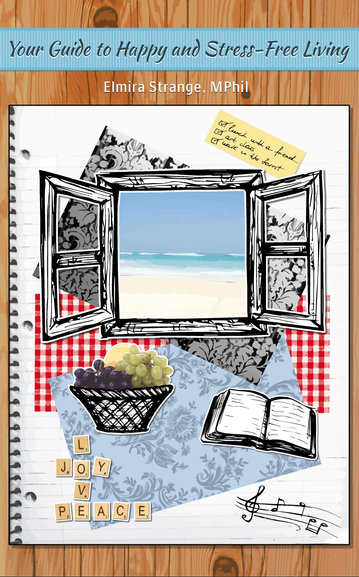What is Anxiety and Anxiety Disorders
Anxiety is what psychologists call ‘anxiety disorder’.
Anxiety is an unpleasant feeling of fear and apprehension, whereas anxiety disorder is what you can be diagnosed with if you experience anxiety disorder symptoms.
by Elia Strange

Everyone
experiences anxiety to some degree. When you prepare for a job
interview or even for your next holiday, you might experience feelings
of uncertainty, nervousness, and anxiety.
If you suffer from anxiety
disorder, then your feelings would be much worse. For example, you might
be suffering from panic disorder, a particular phobia of something
specific, post-traumatic stress disorder, or a variety of all those
things.
Generally speaking, when you experience anxiety, you
might feel dizziness, rapid heartbeat, trembling. You might also feel
being terrorised and being in danger.
When your anxiety becomes anxiety disorder?
Generally
speaking, if you have feelings of anxiety that are overwhelming you,
disrupt your daily life and your sense of wellbeing, and has been with
you for at least 6 months, then you might be suffering from anxiety
disorder.
If the symptoms cannot be explained by a specific event (for
example, you had a trauma in the past, or you are afraid of particular
objects or places), then you might be diagnosed with Generalised Anxiety
Disorder.
What are the anxiety disorders?
Psychologists
categorise anxiety disorders into 6 principal categories: phobias,
panic disorder, generalised anxiety disorder, obsessive-compulsive
disorder, posttraumatic stress disorder, and acute stress disorder.
Often a person diagnosed with anxiety disorder actually experiences more
than one of the aforementioned types.
CASE STUDY:

The patient, a twenty-four-year-old mechanic, had been referred
for psychotherapy by his physician, whom he had consulted because of his
dizziness and difficulties in falling asleep.
He was quite visibly
distressed during the entire initial interview, gulping before he spoke,
sweating, and continually fidgeting in his chair. His repeated requests
for water to slake a seemingly unquenchable thirst were another
indication of his extreme nerviousness. Although he first related his
physical concerns, a more general picture of pervasive anxiety soon
emerged.
He reported that he nearly always feels
tense. He seemed to worry about anything and everything. He was
apprehensive of disasters that could befall him as he worked and
interacted with other people. He reported a long history of difficulties
in interpersonal relationships, which had led to his being fired from
several jobs.
As he put it, “I really like people and try to get along
with them, but it seems like I fly off the handle too easily. Little
things they do upset me too much. I just can’t cope unless everything is
going exactly right”.
How do they treat anxiety disorders?
The
treatment usually consists of two types: psychological therapy and
medication.
Psychological treatments typically involve several sessions
of psychotherapy which are aimed at changing the way you think about and
react to your experience of anxiety.
For example, the way you feel
about certain events, people and places, may be successfully changed so
that you felt less stressed and anxious.
Medical treatments
often involve drugs that reduce anxiety – sedative, tranquilisers, or
anxiolytics.
Some drugs unfortunately can cause certain side effects
such as weight gain, sexual dysfunction, hypertension, and addiction to
them. This is why psychological approaches are always preferable.
What can you do yourself to reduce your anxiety
It
depends on the degree of anxiety you experience and the causes of them.
If they are connected to your feelings of being stressed, then you
might benefit from the suggestions I made in these articles:
What to do when you are stressed
and
How to reduce stress instantly.
You could also benefit from books on relaxation and reducing stress,
which are available on Amazon in their hundreds. What might be suitable
for one might not be suitable for or appealing to another, so have a
look and make your choice.
However, if you find that anxiety is
overwhelming, and when it comes, you feel fear, helplessness, and that
you are not able to move, then may be a trip to a counsellor or your
medical practitioner might be an option for you.
Other Articles you might be interested in:
Do I have Anxiety Disorder
Life is too f***ing short
What is OCD
How to be happy in this 'unhappy' world
Do I have Social Anxiety?
I have Social Anxiety... What to do?
... or go to:
Article Archives
Archives (Page 2)
Home Page (Coping with Stress)
'What is Anxiety' Article Reference:
Davidson, G.C., Neale, J.M. & Kring, A.M. (2004). Abnormal Psychology.
Rathus, S.A. (1999). Psychology in the new millennium. (7th ed.)
Durand, V.M., Barlow, D.H. (2006). Essentials of Abnormal Psychology. (4th ed.)
Or follow me on Twitter and Google+ by clicking on the symbols below:
Sign
up below to receive my free email newsletter with new fresh articles to
help you to become healthier and happier.
It's sent about once a month.
No spam. No
sharing of your email address. Easily unsubscribe at any time.
Best Articles:
10 tips to strengthen your marriage
Best ways to manage your stress
How to get what you want (the Law of Attraction)
Why do I need to eat healthy?
Signs and stages of stress
13 Facts about sugar addiction
7 Reasons for our unhappiness
Why people commit suicide
How to get a good night sleep
Try these Tests and Quizzes:
Is it time to take stress seriously?
How well do you know yourself?
Can you talk to teenagers?
Do you have a time to recreate?
Can you cope with stress well?
The Latest Articles:
Green Smoothie Recipe
Stress in Parents and Carers of disabled children (VIDEO)
Did you find your dream job yet?
Is an eye mask good for sleeping?
How to look and appear confident
Why am I tired all the time?
Exercise tips: 8 easy ideas for losing weight and become fitter
15 Sure signs that you are stressed
Are memory foam mattresses worth it?
How stress affects your health: What stress is doing to your body
How to get what you want (the Law of Attraction)
How to be more patient
How to deal with SAD: Autumn depression
How to stop negative thinking
How bad is your memory? (Fun Quiz)
What is love - in children words
How to make people like you?
Why do I forget things?
10 Tips to strengthen your marriage
Would you move abroad?
Are holidays worth it?




New! Comments
Have your say about what you just read! Leave me a comment in the box below.